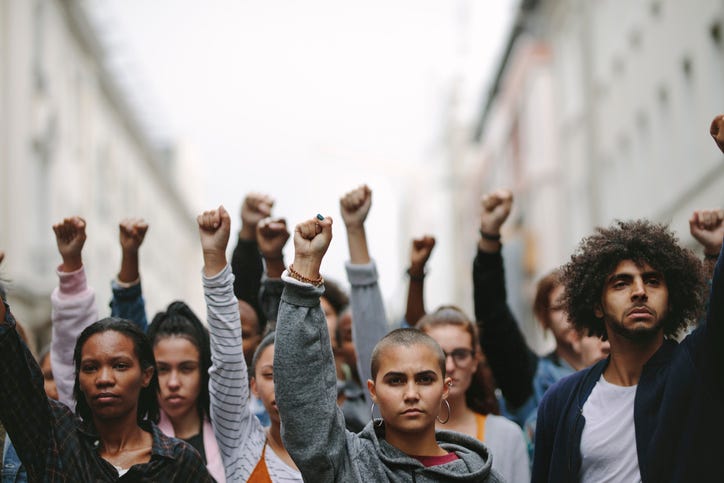
Seeing black men murdered on our phones isn't new, nor is police brutality against Black people.
But when a tanker truck drove into a crowd of protesters while Ron Johnson was filming the unrest that followed the death of George Floyd, the videographer knew he had to do what he could to tell the stories of victims in their own words.
"People are exhausted and frustrated," after having suffered a million indignities, being over policed and suffering the indignities of lowered expectations, people featured in the video attest. There's trauma.
Johnson, who has filmed for local news stations for 15 years, was on the bridge May 31 when the truck drove in. In the aftermath, he started having panic attacks,and said he wanted to turn outward to help heal himself -- and others.
“It felt like my brain and body were preparing to die," Johnson said. "I couldn’t breathe. I lost speech. I just felt scared all the time."
He knew he wasn't alone in those feelings.
Johnson filmed coworkers at Best Buy telling their everyday stories that should be anything but normalized. Have you ever been praised for being articulate? Had your lip slammed against a patrol car? Been victimized by people who had no fear of repercussion? Had the N-word slung at you casually by someone whose face was twisted up in hate?
This video will let you hear in chilling detail from people who've experienced it all. Their stories are laid bare. Their tears are real.
Humiliation when one woman is called the N-word and a room full of people say nothing or when a good kid is attacked and called a thug. 'I never thought I would be affected by that word," one woman says in the video, tears streaming.
Smiling and laughing when you walk into a room -- even when you don't feel like it -- so that the others are disarmed. Telling your kids they can't walk to the park alone, not because they're in danger from crime but because they may be considered a threat.
“I needed an outlet for the trauma, anger and grief I’ve been carrying for so long,” Johnson said. “Several of my Black colleagues were willing to share their truths as well, and I’m humbled by their vulnerability.”
Their stories are real, moving -- and terrifying.
